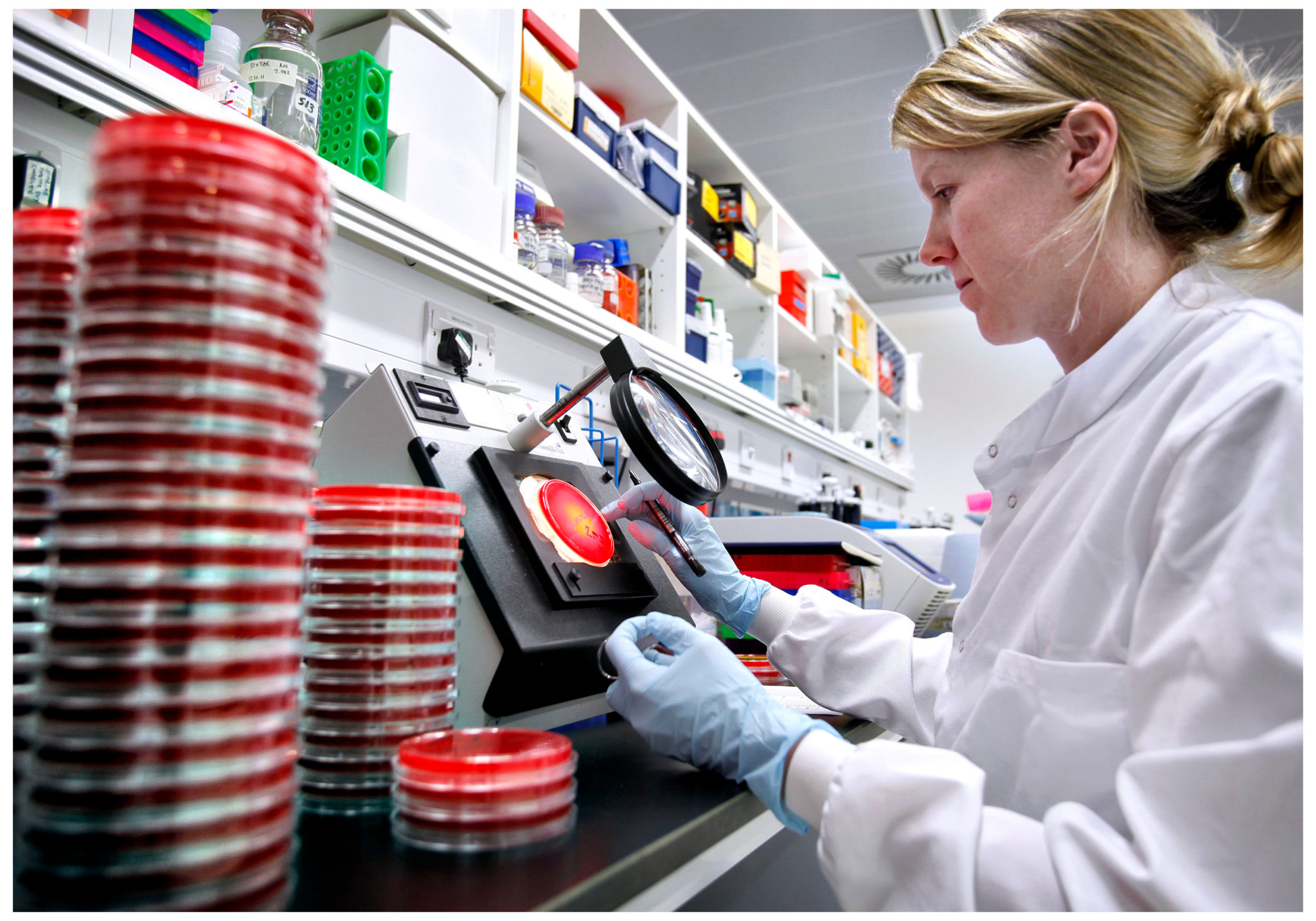Today’s blog is a repost from the staff magazine – Bulletin, from 14 July 2020 on our research during lockdown and the work of the Research and Innovation work stream.
When lockdown began, our researchers stood up. Across the University, colleagues looked at their labs, their skill sets and their expertise and asked how they could contribute to the fight against Covid-19.
At a time when every part of society and much of the economy has been battered and disrupted by the pandemic, it has been heartening and inspiring to be part of an organisation that has the power to discover critical knowledge and devise practical solutions.
Within weeks of lockdown, existing funding was diverted, new sources were found. More than 50 Covid-19 research projects geared up across the three Colleges.
They included the retooling of labs and redeploying 150 scientists at BioQuarter to search for potential treatments for the disease in existing and experimental drugs. Facilities at laboratories in the Institute of Genetics and Molecular Medicine were converted into a testing centre that integrated with and doubled NHS capacity.
Our experts began leading the UK-wide initiative to sequence the genomes of the most critically ill patients, to understand why Covid-19 affects some people more severely than others.
Our engineers started creating PPE for key workers, pioneering innovative techniques such as laser cutting face guards, and measuring the efficacy of facemasks.
Our social scientists began working with care home staff to help ease the trauma experienced by front line workers, informing the debate on disproportionate infection and mortality rates for BAME groups, and analysing how the enforced school closures and isolation is affecting the wellbeing of young people.
Extraordinary colleagues have been sought out to sit on panels advising the UK and Scottish Governments and international bodies such as the WHO. Open a paper, turn on the radio, watch the news and you are likely to see our academics informing the debate, educating the public, and nudging policy makers towards informed, sensible action.
Partnerships have been deepened, new ones formed, and our impact is global. And all this is just a fraction of the work that has been done and is ongoing. It is something to be proud of.
The Research and Innovation work stream within the University Adaptation and Renewal project has been tasked with building on this excellence, navigating the restart of non-Covid research as lockdown is eased, and charting the way ahead for these activities upon which much of our global reputation is rightly based.
What has been achieved so far? Since labs were allowed to reopen from 29 June, there has been an extraordinary effort to get non-Covid research restarted. We have worked with colleagues in Estates, Health & Safety, Schools and Colleges on the phased reopening of our facilities for researchers to restart their vital work.
Within the first two weeks, more than half of our research laboratory buildings were open. The impressive pace, with safety paramount at every turn, means we are well ahead of most other universities in restarting our research and innovation.
The burden of lockdown and the pandemic has fallen unequally on our researchers. Care commitments, personal circumstances and the nature of their research means that, for many, their work has been extremely challenging or even impossible.
We have stressed that regardless of where research is conducted, be it at a University facility or at home, or when it is able to restart, the work is of equal value. For those working from home, we have provided access to offices to retrieve essential research material. Many are now availing themselves of this facility. We will also be piloting opening limited office facilities for those who wish to work but are not able to do so at home. We are exploring how this can be done safely and effectively within the new rules of distancing and hygiene.
It has been extraordinary to witness that despite the upheaval and challenges of 2020, our staff have maintained their success in winning grants and writing sector-leading papers and outputs. We remain in the global top 20 in the QS rankings, which is testament to colleagues’ excellence.
We are also committed to mitigating the impacts of Covid-19 on research careers, especially for early career staff and those with protected characteristics. Bespoke support and advice for these groups will soon be available. Guidance on how to conduct face-to-face research – so crucial for many fields of study – is being drafted.
The Research and Innovation work stream is also looking at reducing the adverse impact of Covid-19 on research grants. UK Research and Innovation (UKRI) recently announced that extra funding is being made available to extend a proportion of affected final year UKRI grant-funded research and fellowships. We will distribute this via Colleges as soon as it is received.
The Scottish Funding Council has also announced a new research support package. These are welcome, if far from comprehensive, resources that will help in the short term. We will ensure that this money provides help where the need is demonstrably greatest, and is used to position the University’s research and innovation for future challenges.
So then, what does the future of research and innovation look like? Our ambition for Edinburgh to become the data capital of Europe, as set out in the City Deal agreement and driven by our Data Driven Innovation programme, remains undimmed. Indeed, the current crisis has made our work with data and in the digital sphere even more urgent.
And some research priorities will also change, recast in light of Covid-19. Research and innovation will remain central to ensuring that the University emerges from the crisis a renewed and stronger force for good in Edinburgh and the world. The pandemic has not shaken its importance. It has underscored it.
Written by: Edd McCracken, Head of News.
Photography: University of Edinburgh; anyaivanova/GettyImages.
(University of Edinburgh; anyaivanova/GettyImages)
(University of Edinburgh; anyaivanova/GettyImages)
(University of Edinburgh; anyaivanova/GettyImages)



